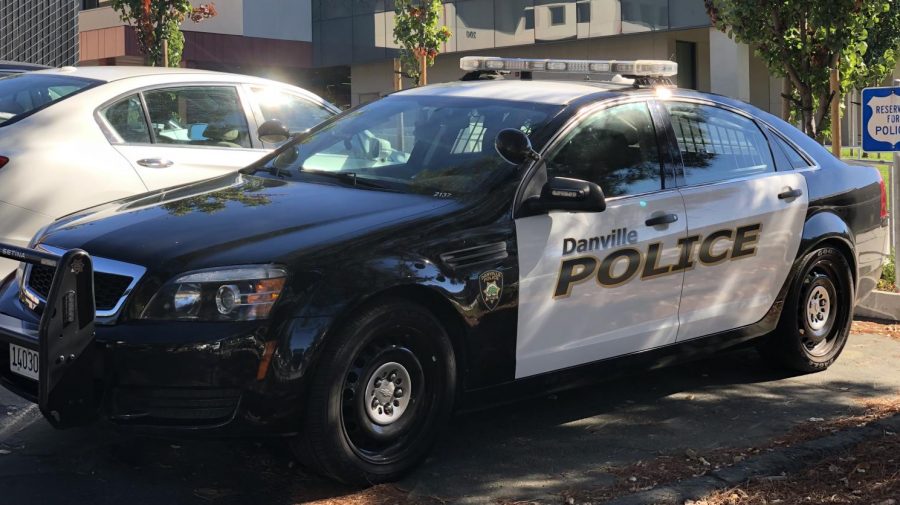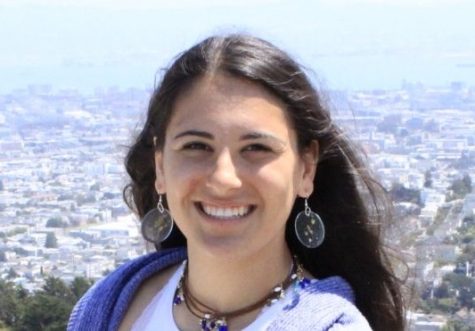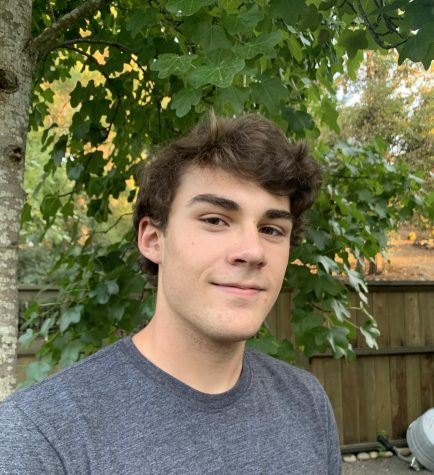Chief Enforces Morals, Cops Hand out Tickets
The police patrol Monte Vista’s campus in order to provide supervision in specific areas of Danville. Some students have had undesirable encounters with the officers.
November 13, 2018
Danville is the safest city in California, but has anyone ever thought, “What goes on behind the scenes?”
Many consider Danville to be home of the rich, privileged and ungrateful. While residents of our small town tend to be of a higher-class, their strong morals are the largest contributing factors to a safe city, according to Danville’s Chief of Police, Allan Shields.
“It takes a lot of different ideas [to maintain a safe town]…and a fair amount of adaptability,” Shields said. “But we certainly have the same values. [Citizens and commissioners] all want a safe city. So when that is the end goal, we can deal with divergent ideas and opinions and find ways to move forward and keep us safe.”
Although fairly new to the city of Danville, Shields is quite accomplished in the field of patrol—with about 20 years of experience under his belt. His gathered knowledge has led him to a revelation of what the most impactful way to patrol a community is.
“The proof that law enforcement is actually effective is the absence of crime,” Shields said. “We want to spend [our time] on prevention.”
Technological advancements have been implemented throughout Danville, including the use of a license tracker at the intersections, along with an increased amount of cameras in order to achieve that goal. While seemingly insignificant, they have managed to solve and stop a number of crimes from occurring.
Additionally, Shields mentions multiple times that classifying individuals into groups, which allows the targeting of specific persons, is unethical and unjust. Attempting to stay away from the statistics of definite groups, Shields describes the nature of police officers given the responsibilities of preventing crime.
“The problem with trying to put people in groups is that, one, I start to target what could be innocent people that then lie within that group, and then I’m going to miss people that lie outside of that group that are bad people,” Shields said. “We try to look at individuals.”
However, Shields emphasizes that it is important to protect the rights of citizens by not allowing his officers to overstep the boundaries of the people. While others often overlook the first and fourth amendments, according to Shields, his officers’ training programs prioritize the equality of all.
“We’re very careful that we protect people’s right to freedom of speech, and, frankly, [that we keep them] protected from us, making sure that we are not violating people’s fourth amendment right: their right to [stop] an unreasonable search and procedure.” Shields said.
The protocol for becoming a police officer has intensified significantly in recent years, with social media and values playing a more prevalent role in the hiring of an aspiring cop. In total, the training process takes about 13-16 months. However, for some students, the programs don’t seem to be proving sufficient.
Hayden Parris, a junior at Monte Vista, has had an encounter with the police, unfitting to the description provided by Shields.
“I was turning left, and I see a bunch of lights behind me,” Parris said. “I got pulled over by three cop cars. They said I was recklessly driving even though…I definitely wasn’t.”
Given the situation, Parris claims he doesn’t believe the ticket was specific to the fact that he was a teenager, providing accuracy to Shields’s moral foundation. Yet the circumstances also scream false to the values Shields implements in his cops, with teenage drivers assuming they are being targeted if a permit sticker is visible on their car.
“Three cop cars for one person?” Parris said. “That shows the lack of other things [they have] to do.”
Parris, along with many other residents of Danville, have had an unnecessary encounter or experience with the police who have disregarded Shields’s protocols. Although Shields may be attempting to enforce a fair patrol of our town, his officers are simply not following the (seemingly) new rules of the chief of police.
“I think in some cases [cops’ extreme reactions] do [keep us safer], but it’s just overkill in others,” Parris said.
However, driving offenses aren’t the only violations that can have you cited. Carson Bath, a student at San Ramon Valley High School, describes an encounter her grandpa had with a policeman in front of her house on the Iron Horse Trail.
“My grandpa was walking my dog when he was stopped by an older man,” Bath said. “My grandpa at the time was holding the leash in his hand and did not have it on the dog. The man said he was going to call the police if he didn’t have a leash on him. He proceeded to have the police come, and my grandpa was fined.”
Bath’s grandpa is not the only family member to have been “in violation with the law.” Her mom has been stopped for (barely) speeding around Danville on multiple occasions.
Matthew Lillie, a police officer working for East Bay Regional Park District Police, provides another perspective for the concerns of unhappy citizens. In addition to believing that officers should be capable of deciding when and when not to hand out a ticket, he also states that the citations have been given out in respect for a specific aspect of the community.
“[Handing out tickets] is a quality of life issue,” Lillie said. “[My department] addresses issues like people walking on the trail and having dogs walk up to them,…[which] might prompt an officer to write a ticket.”
In regards to Parris’s statement, Lillie proceeds to state that he wasn’t there to witness the situation.
Overall, statistics prove the reliability of Lillie’s claims, with only 17 total violent crimes (rape, robbery, aggravated assault, etc.) in the year 2014, proving officers’ methods effective.
We can all see that the power the cops hold can be slightly abused, in effect, altering the rules they follow. However, the work of Shields has provided a positive foundation for the safety of Danville’s civilians. And we can mostly agree that a few tickets handed out in exaggerated situations is worth a safe city.














